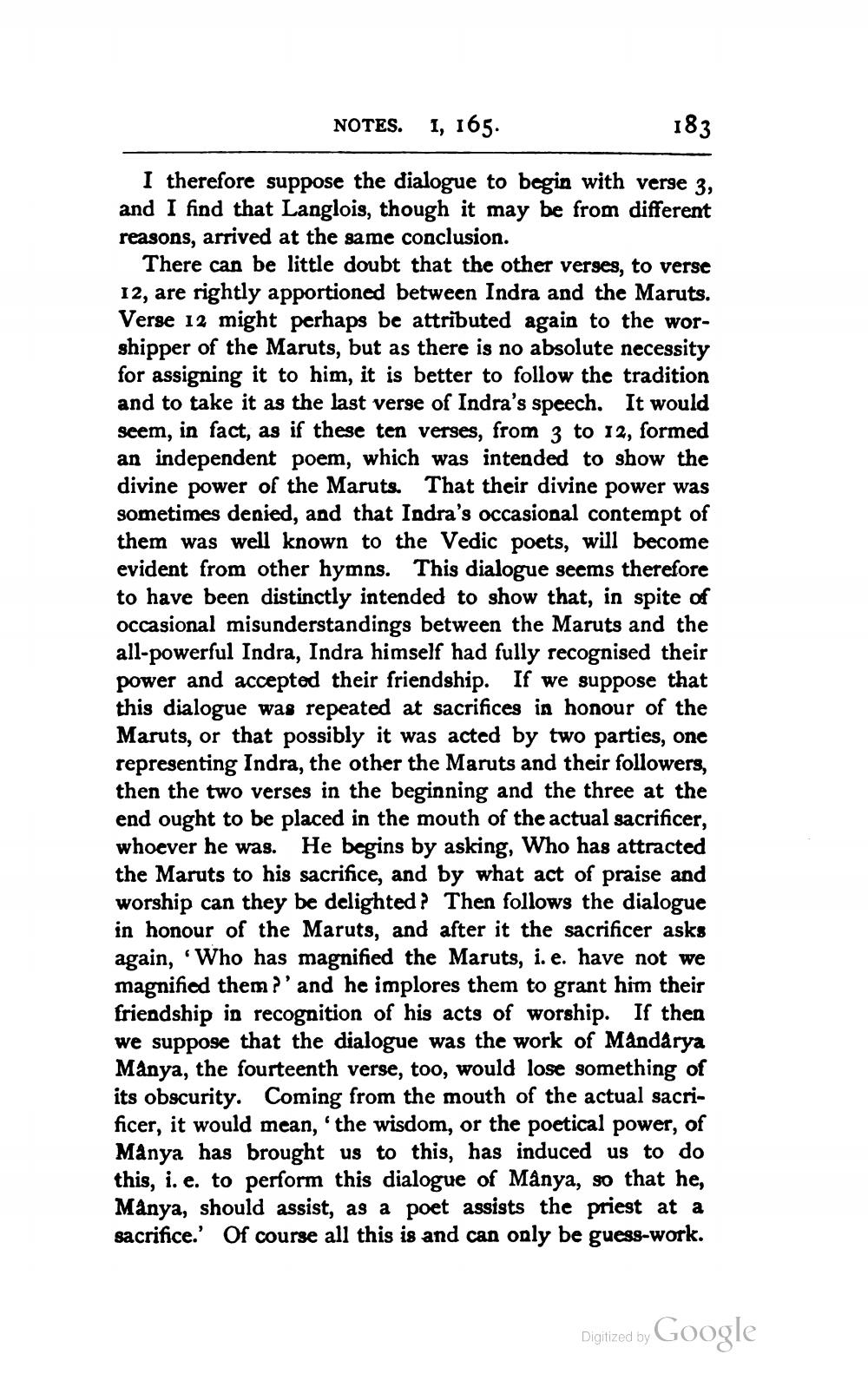________________
NOTES. 1, 165.
183
I therefore suppose the dialogue to begin with verse 3, and I find that Langlois, though it may be from different reasons, arrived at the same conclusion.
There can be little doubt that the other verses, to verse 12, are rightly apportioned between Indra and the Maruts. Verse 12 might perhaps be attributed again to the worshipper of the Maruts, but as there is no absolute necessity for assigning it to him, it is better to follow the tradition and to take it as the last verse of Indra's speech. It would seem, in fact, as if these ten verses, from 3 to 12, formed an independent poem, which was intended to show the divine power of the Maruts. That their divine power was sometimes denied, and that Indra's occasional contempt of them was well known to the Vedic poets, will become evident from other hymns. This dialogue seems therefore to have been distinctly intended to show that, in spite of occasional misunderstandings between the Maruts and the all-powerful Indra, Indra himself had fully recognised their power and accepted their friendship. If we suppose that this dialogue was repeated at sacrifices in honour of the Maruts, or that possibly it was acted by two parties, one representing Indra, the other the Maruts and their followers, then the two verses in the beginning and the three at the end ought to be placed in the mouth of the actual sacrificer, whoever he was. He begins by asking, Who has attracted the Maruts to his sacrifice, and by what act of praise and worship can they be delighted? Then follows the dialogue in honour of the Maruts, and after it the sacrificer asks again, Who has magnified the Maruts, i.e. have not we magnified them?' and he implores them to grant him their friendship in recognition of his acts of worship. If then we suppose that the dialogue was the work of Mandarya Manya, the fourteenth verse, too, would lose something of its obscurity. Coming from the mouth of the actual sacrificer, it would mean, the wisdom, or the poetical power, of Mânya has brought us to this, has induced us to do this, i. e. to perform this dialogue of Manya, so that he, Manya, should assist, as a poet assists the priest at a sacrifice.' Of course all this is and can only be guess-work.
Digitized by
Digized by Google




